- Testimonials


Starting a student essay with a question can be a good idea, but some questions are better than others
What kinds of questions should you NOT use to start an essay?
• Questions that can be answered with a “yes” or a “no” are usually bad questions. Do you have any reason to continue reading when you read these questions? –Have you ever played basketball? –Do you really want a dog? –Would you like to hear about my trip to the beach?
• Questions which ask about information that only a few people might be interested in are bad questions. –How often do hockey players need to sharpen their skates? –Have you ever wondered about all those African sculptures in the Atlanta airport? –Have you eaten on top of the Eifel Tower?
• Questions about a student’s family or people most readers don’t know are not interesting. –How can Samanyu always beat me at Monopoly? –Is your sister annoying, like mine is? –So Mom and Dad, did you remember that my birthday is coming up?
• Questions about things everybody knows about are boring questions. –Do you want to know about our teacher, Mrs. Storm? –Do you know why we have fire drills? –How do you get an A on a math test?
What kinds of questions should you use to start an essay?
• Funny questions make readers want to keep reading. –Do you really want a bad-breath, farting, slobbering, snoring pet like a dog? –What would you do if you were digging a sand castle at the beach, when a crab scooted right in the moat?
• Questions which promise adventure or mystery attract readers. –Wouldn’t it be fun to drive cars on two wheels, spin them around and smash them into buildings like my uncle does? –So there we were, lost in a maze, when my sister said, “Go left!” and my brother said, “Go right!” They were both right. Do you know why?
• Questions which make a person think can be good questions. –If you could have superpowers, would you want to be invisible or to fly? –What is the fastest running animal in the world? How about the fastest flying? And the fastest swimming?
• Questions which ask about a situation which many readers might have been in can make a reader want to continue. For example, –What would you do if your neighborhood swim team lost every meet and the kids wanted to switch teams? –Have you ever wanted to tattle on a bully on the school bus but you were afraid to?
In general, questions which make a reader think are good questions, while questions which can be answered with one word are bad questions.
Share this:
- Click to share on Facebook (Opens in new window)
- Click to share on Pinterest (Opens in new window)
- Click to share on Twitter (Opens in new window)
- Click to email a link to a friend (Opens in new window)
What's your thinking on this topic? Cancel reply
One-on-one online writing improvement for students of all ages.

As a professional writer and former certified middle and high school educator, I now teach writing skills online. I coach students of all ages on the practices of writing. Click on my photo for more details.

You may think revising means finding grammar and spelling mistakes when it really means rewriting—moving ideas around, adding more details, using specific verbs, varying your sentence structures and adding figurative language. Learn how to improve your writing with these rewriting ideas and more. Click on the photo For more details.

Comical stories, repetitive phrasing, and expressive illustrations engage early readers and build reading confidence. Each story includes easy to pronounce two-, three-, and four-letter words which follow the rules of phonics. The result is a fun reading experience leading to comprehension, recall, and stimulating discussion. Each story is true children’s literature with a beginning, a middle and an end. Each book also contains a "fun and games" activity section to further develop the beginning reader's learning experience.
Mrs. K’s Store of home schooling/teaching resources

Furia--Quick Study Guide is a nine-page text with detailed information on the setting; 17 characters; 10 themes; 8 places, teams, and motifs; and 15 direct quotes from the text. Teachers who have read the novel can months later come up to speed in five minutes by reading the study guide.
Post Categories
Follow blog via email.
Enter your email address to follow this blog and receive notifications of new posts by email.
Email Address:
Peachtree Corners, GA
- Already have a WordPress.com account? Log in now.
- Subscribe Subscribed
- Copy shortlink
- Report this content
- View post in Reader
- Manage subscriptions
- Collapse this bar
The writer of the academic essay aims to persuade readers of an idea based on evidence. The beginning of the essay is a crucial first step in this process. In order to engage readers and establish your authority, the beginning of your essay has to accomplish certain business. Your beginning should introduce the essay, focus it, and orient readers.
Introduce the Essay. The beginning lets your readers know what the essay is about, the topic . The essay's topic does not exist in a vacuum, however; part of letting readers know what your essay is about means establishing the essay's context , the frame within which you will approach your topic. For instance, in an essay about the First Amendment guarantee of freedom of speech, the context may be a particular legal theory about the speech right; it may be historical information concerning the writing of the amendment; it may be a contemporary dispute over flag burning; or it may be a question raised by the text itself. The point here is that, in establishing the essay's context, you are also limiting your topic. That is, you are framing an approach to your topic that necessarily eliminates other approaches. Thus, when you determine your context, you simultaneously narrow your topic and take a big step toward focusing your essay. Here's an example.
| was published in 1899, critics condemned the book as immoral. One typical critic, writing in the , feared that the novel might "fall into the hands of youth, leading them to dwell on things that only matured persons can understand, and promoting unholy imaginations and unclean desires" (150). A reviewer in the wrote that "there is much that is very improper in it, not to say positively unseemly." |
The paragraph goes on. But as you can see, Chopin's novel (the topic) is introduced in the context of the critical and moral controversy its publication engendered.
Focus the Essay. Beyond introducing your topic, your beginning must also let readers know what the central issue is. What question or problem will you be thinking about? You can pose a question that will lead to your idea (in which case, your idea will be the answer to your question), or you can make a thesis statement. Or you can do both: you can ask a question and immediately suggest the answer that your essay will argue. Here's an example from an essay about Memorial Hall.
The fullness of your idea will not emerge until your conclusion, but your beginning must clearly indicate the direction your idea will take, must set your essay on that road. And whether you focus your essay by posing a question, stating a thesis, or combining these approaches, by the end of your beginning, readers should know what you're writing about, and why —and why they might want to read on.
Orient Readers. Orienting readers, locating them in your discussion, means providing information and explanations wherever necessary for your readers' understanding. Orienting is important throughout your essay, but it is crucial in the beginning. Readers who don't have the information they need to follow your discussion will get lost and quit reading. (Your teachers, of course, will trudge on.) Supplying the necessary information to orient your readers may be as simple as answering the journalist's questions of who, what, where, when, how, and why. It may mean providing a brief overview of events or a summary of the text you'll be analyzing. If the source text is brief, such as the First Amendment, you might just quote it. If the text is well known, your summary, for most audiences, won't need to be more than an identifying phrase or two:
| , Shakespeare's tragedy of `star-crossed lovers' destroyed by the blood feud between their two families, the minor characters . . . |
Often, however, you will want to summarize your source more fully so that readers can follow your analysis of it.
Questions of Length and Order. How long should the beginning be? The length should be proportionate to the length and complexity of the whole essay. For instance, if you're writing a five-page essay analyzing a single text, your beginning should be brief, no more than one or two paragraphs. On the other hand, it may take a couple of pages to set up a ten-page essay.
Does the business of the beginning have to be addressed in a particular order? No, but the order should be logical. Usually, for instance, the question or statement that focuses the essay comes at the end of the beginning, where it serves as the jumping-off point for the middle, or main body, of the essay. Topic and context are often intertwined, but the context may be established before the particular topic is introduced. In other words, the order in which you accomplish the business of the beginning is flexible and should be determined by your purpose.
Opening Strategies. There is still the further question of how to start. What makes a good opening? You can start with specific facts and information, a keynote quotation, a question, an anecdote, or an image. But whatever sort of opening you choose, it should be directly related to your focus. A snappy quotation that doesn't help establish the context for your essay or that later plays no part in your thinking will only mislead readers and blur your focus. Be as direct and specific as you can be. This means you should avoid two types of openings:
- The history-of-the-world (or long-distance) opening, which aims to establish a context for the essay by getting a long running start: "Ever since the dawn of civilized life, societies have struggled to reconcile the need for change with the need for order." What are we talking about here, political revolution or a new brand of soft drink? Get to it.
- The funnel opening (a variation on the same theme), which starts with something broad and general and "funnels" its way down to a specific topic. If your essay is an argument about state-mandated prayer in public schools, don't start by generalizing about religion; start with the specific topic at hand.
Remember. After working your way through the whole draft, testing your thinking against the evidence, perhaps changing direction or modifying the idea you started with, go back to your beginning and make sure it still provides a clear focus for the essay. Then clarify and sharpen your focus as needed. Clear, direct beginnings rarely present themselves ready-made; they must be written, and rewritten, into the sort of sharp-eyed clarity that engages readers and establishes your authority.
Copyright 1999, Patricia Kain, for the Writing Center at Harvard University
- Have your assignments done by seasoned writers. We work 24/7. Just email us at:
- [email protected]

Can you ask Questions in an Essay? How to Blend them Well
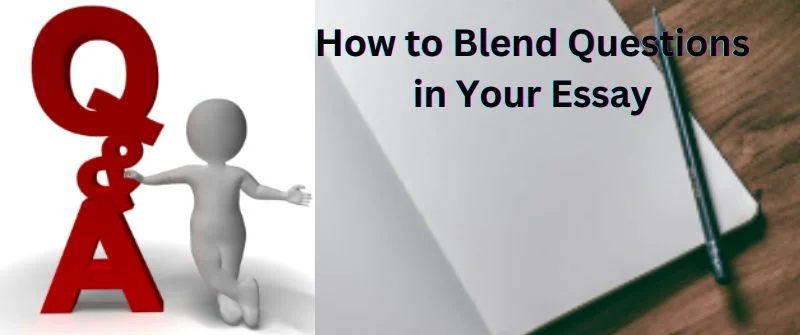
How to Blend Questions in Your Essay
Sometimes when writing an essay, you might have a point or an argument that is best presented through a simple or rhetorical question. In this post, we explore questions that can be asked in essays. We expound on the tips to follow when asking questions in an essay and how to do it.
For those who would need personalized help writing essays with questions, we have a team of expert essay writers who can guide you further or even write the whole assignment for you. Just check out that page. However, read on if you want to handle it yourself.
You must provide a satisfactory answer whenever you ask questions in an essay. If you cannot answer it, you must explain why the question cannot be resolved effectively.

Can you ask Questions in an essay?
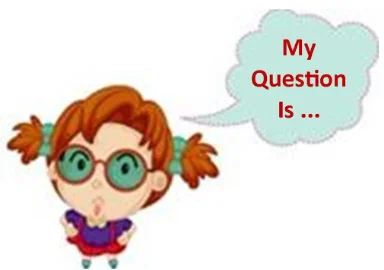
In academic writing, it is preferable to specify your research question as you start your paper and address it in the conclusion.
The question should not be so dramatic to spark interest among readers.
The question should be specific and as simply answerable as possible. The questions you consider using in your research should not in any way confuse readers.
Ideally, you can ask questions in an essay, provided they are relevant and add value to the arguments of a paragraph.
A question in an essay should always contribute something substantial to the arguments you make in the essay. Questions should not bring idle speculations that may drop the essay’s tone.
Questions are often very debatable and may change with time. Therefore, be sure of the questions you will use. This will help you put across clear and genuine arguments about the question.
As long as you can defend your argument, your critics will have to accept your points even if they are unconventional.
Questions that are not supported by strong existing debates and are mainly set up with the thought of pulling them down, later on, should be followed by a caution. This keeps you safe from attacks of those who may wish to fault your arguments.
Get a Brilliant Essay today!
Let our essay writing experts help you get that A in your next essay. Place your order today, and you will enjoy the benefits.
How to format a question in an essay?
According to the MLA writing format, questions in essays should be formatted as follows:
Use a colon to precede single questions that are contained in a sentence. This is done only if the word that comes before the question is not a verb. Capital letters should be used to start the questions.
Direct questions that are long with internal punctuations that are contained in a sentence should begin with a capital letter and set off with a comma.

Incorporating questions in sentences should be done correctly to avoid errors that can distort the information in a question.
For questions incorporated in series in sentences, lowercase letters should be used to begin the questions.
These questions in the series are not capitalized because they do not begin with proper nouns and are incomplete.
Complete questions should always start with a capital letter and end with a question mark.
Questions in the APA format are to be formatted as APA requires. This includes using the size 12 Times New Roman font, double-spacing the text, and using one-inch margins.
For question-and-answer essays, use numerals followed by periods to show the position of the question. Hit enter to write the answer and hit enter again after the answer to write the next question.
There is no need to differentiate the answer and the question, for example, by making the question bold.
Can you Start or End an Essay with a question?
You can start your essay with a question. Questions have proved to be a good method of getting readers hooked to your essay. They place the reader in doubt.
The reader is likely to mull over the issue rather than have their thoughts contradicted. Questions at the beginning of the essay also let the readers think about the issues discussed in the essay.
This keeps them involved as they go through the paper as well as gives you a nice opportunity to use a different angle to answer the question.
Questions also can excellently introduce striking news. Questions starting an essay should be related to the concept you are writing about.
The questions should be answered in the introduction part. The answer forms the thesis of your essay.
As long as it is used effectively, ending your essay with a question is not wrong. Questions can be used to involve readers and have their say on the topic discussed in the essay.
The question at the end of the essay should reflect on the issues discussed in the essay.
Ways of Ending an Essay with a Question
Concluding your essay can be effective in the following ways:
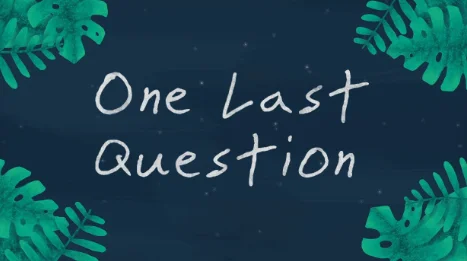
- Questions usually make further discussions possible. Readers can start a discussion and explore more on questions asked at the end of essays.
- Readers will always think and talk about essays that end with questions. They will always try to answer the question posed.
- It is easy for readers to connect and relate with your essay through questions used to end essays because they make the essay more intriguing.
- The questions also bring the reader close to your essay and can earn you some extra credit.
- Choosing a question that relates to your essay helps you easily summarize the ideas you included in your essay and understand them clearly. Readers also are likely to familiarize themselves with the whole concept.
- When you need a reader to remember your essay, using a question to end your essay is one of the perfect strategies. Finishing your essay with a question is a unique element that can help your essay stand out.
Can you use Rhetorical Questions in Academic Writing?
Rhetorical questions have no room in academic writing. Rhetorical questions are not in the third person as academic writing should be.
They are in first-person, which is a big error in academic writing. Academic writing needs to be direct to the point, and there should be no room for posting questions, causing uncertainty, or entertaining the reader.
Suspense is also not allowed in academic writing. This makes the use of rhetorical questions unacceptable in academic writing.
Academic writing should always be informative and is not a form of creative writing.
Need Help with your Homework or Essays?
How to ask a rhetorical question in essays.
Rhetorical questions in essays can be asked in the following circumstances. When emphasizing a point, rhetorical questions can be used after statements to drive the message home.
Example: Almost 100 million is lost every year in government sponsorships. How much more will we lose in the name of support?
In persuasive essays, rhetorical questions are used to evoke emotions in readers. By managing to do so your essay can be regarded as effective. Example: Isn’t everyone a sinner?
The most important reason rhetorical questions are used in essays is that they serve as the best hooks to grab the reader’s attention. The reader can predict where you are headed in the essay. Example: What is the world without feminists?
Rhetorical questions can be used to bring about a smooth transition in an essay. You can pose a question to emphasize, conclude, or introduce a point.
This is usually a hard skill to master. Example: Do you know that corruption is the main form of misuse of funds? 20% of the national budget was lost to corruption in the previous financial year .
How to Introduce a Question in an Essay?
To introduce an essay with a question, you have to know what you will talk about in the essay. This helps you use a question that fits your essay’s words. Questions that appear in between the essay should connect well with your content.
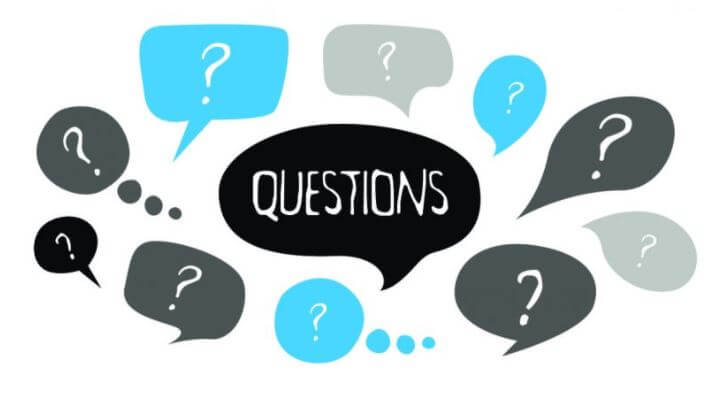
Always have correct answers to the questions you want to introduce in your essay. The questions should make the readers doubt their knowledge of that particular area.
This can include a question with facts and striking facts about the topic involved. You can learn more about writing good essays by reading our blog on how to write good paragraphs for essays and papers.
Also, check whether you can italicize essays and essay titles to get another perspective on essay writing and different ways of formulating titles.

With over 10 years in academia and academic assistance, Alicia Smart is the epitome of excellence in the writing industry. She is our managing editor and is in charge of the writing operations at Grade Bees.
Related posts
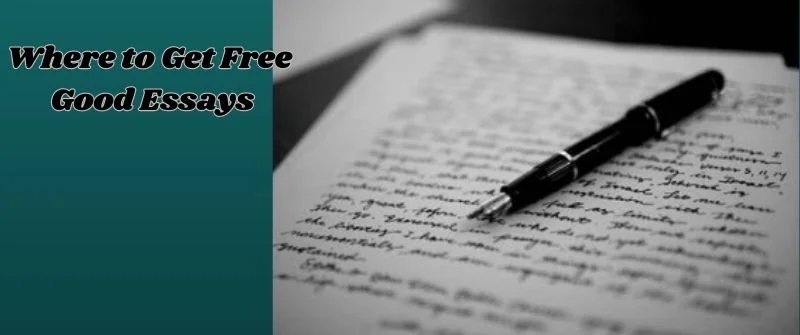
Where to Get Free Good Essays
Sources of Free Essays Online: Where to Get Free Good Essays
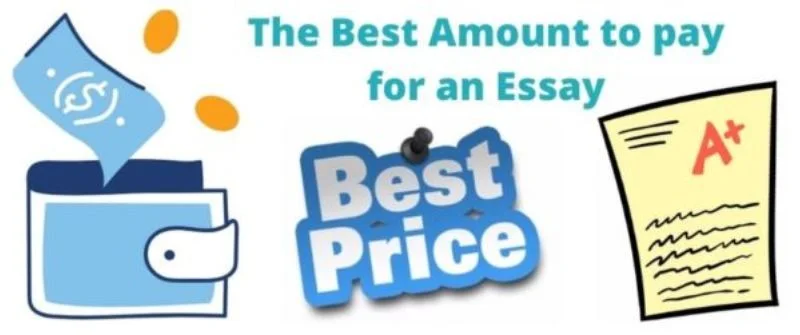
Pay Someone to Write Essays
How Much to Pay Someone to Write Essays: Tips before Paying
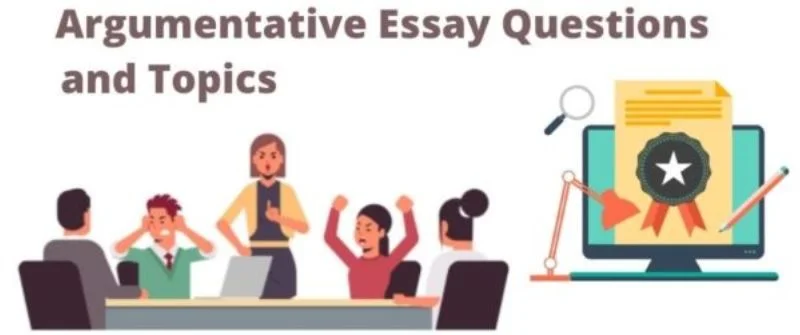
Write Argumentative Questions and Topic
How to Select and Write Argumentative Questions and Topic

- Customer Reviews
- Extended Essays
- IB Internal Assessment
- Theory of Knowledge
- Literature Review
- Dissertations
- Essay Writing
- Research Writing
- Assignment Help
- Capstone Projects
- College Application
- Online Class
Can You Start an Argumentative Essay With a Question?
by Antony W
June 24, 2024
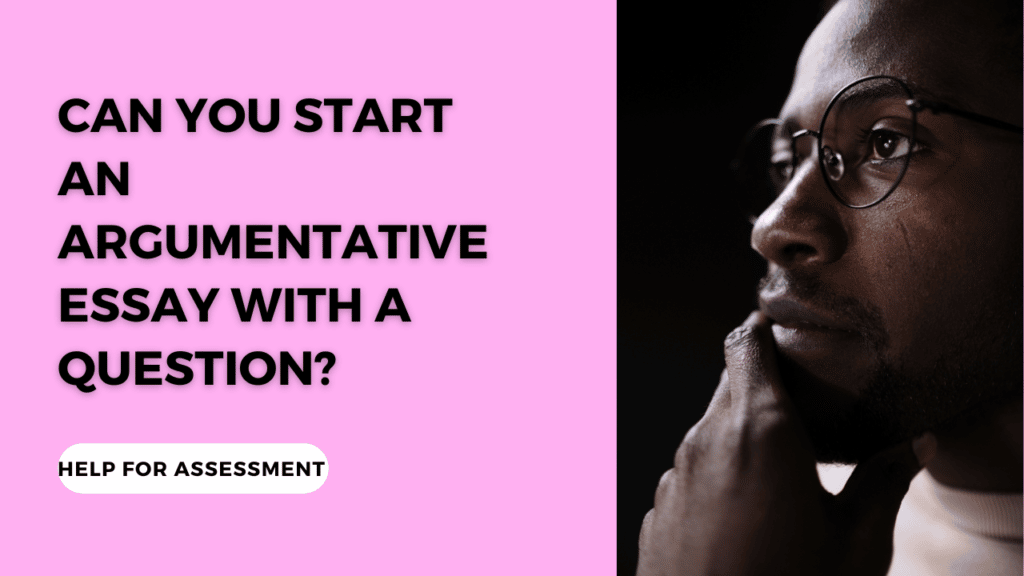
A well-written argumentative essay is one that’s interesting enough to read from the beginning to the end. To grab the attention of the target reader, you must start the essay by stating your main points in the form of an arguable hook . But can you start an argumentative essay with a question?
You can’t start an argumentative essay with a question. While rhetorical questions are powerful for producing an effect or making a statement, they aren’t effective for starting an argument. Rather than asking a question in the essay, start with a rhetorical statement.
Rhetorical statements are far reaching in argumentative writing. Ideally, they give readers something to think about, which can push them to develop the urge to keep reading past the introduction.
Key Takeaways
- Your argument’s introduction must be interesting enough to invite a reader to read the entire essay.
- It’s inappropriate to start an argumentative essay with a question because readers are looking for answers.
- Instead of asking a question in the introduction, use a rhetorical statement instead. Such a statement gives your target something to think about as they read the essay.
Is It Right to Start an Essay With a Question?
To answer this question, you must first understand the purpose of an argumentative essay .
From an academic standpoint, an argumentative essay requires you to develop an argument in response to question. Therefore, responding to a question with an additional question doesn’t inform the essay in any way.
If you start the essay with a question, you shift the burden of answering the question to the reader, which can be annoying and equally distracting.
Understand that readers are looking for answers. It’s your responsibility to convince them that you can answer the question.
We understand how significant rhetorical questions are in writing. If anything, they may help you come to grips with an argumentative essay topic . However, they don’t have a place in argumentative essay writing.
The best way to handle a question is to convert it into a complete statement or an indirect question. By doing so, you make it easy for yourself to give answers without making your readers feel like they should contribute to you argument.
Are Rhetorical Statements Good for an Argumentative Essay?
Rhetorical statements are good for argumentative essays because:
1. They Capture Readers’ Attention
Because rhetorical statements give readers something to think about, they might as well develop an urge to read the rest of the essay to learn what you have to say.
Also, it helps to ask an indirect question in the place of what would otherwise be a boring opening statement.
2. They Evoke Emotions
Your professor is going to review and grade dozens of argumentative essays. If you want yours to stand out, you must make its introduction interesting to read.
Rhetorical statements are a good fit here because they can easily evoke emotion and draw your audience’s attention to read the essay.
The Right Way to Introduce an Argumentative Essay
The golden rule for introducing an argumentative essay is to start with a strong opening.
In our experience, essays that start with bold hooks always win. These essays have the information that easily grab readers’ attention, not to mention compel them to read the rest of the essay.
With that said, here are four great ways to start an argumentative essay:
1. Tell a Story
Many people love stories. They’ll listen to or read more if the anecdote is something they can identify with. So if possible, start your argument with a short story .
Be careful with anecdotal hooks, though. The story you share must have a direct connection with the topic you’re exploring. If the story doesn’t fit, the essay won’t make sense, and your readers may lose interest in your work.
It’s up to you to decide the kind of story you’d like to tell. The story can major on a factual event that happened within the constraints of time and place, a personal experience, or just a figment of your imagination.
In addition to keeping the story short, concise, and interesting, you must demonstrate how relevant the story is to your argument.
2. Use a Quotation Hook
Many students often wonder whether it’s academically sound to start an essay with a quote .
From what we understand, it’s fine to start an argumentative essay with a quote provided you do so with caution.
- You cannot make up a quotation. It has to come from a credible academic source.
- There must be an explanation of the significance and relevance of the quote to your argumentative essay.
One common issue with quotes is that readers may not understand what they mean. So unless you give an explanation within the context of your argument, a quote will not add value to your writing.
3. Share Statistics
You can start an argument with statistics because they raise eyeballs and increase curiosity. Stats can be anything, ranging from number to decimals to percentages and anything in between.
Be cautious with this option. Your data must come from a credible source and the statistics must relate to the topic of the assignment.
Also, you must show the correlation of the stats to the topic so that readers can understand what you’re trying to communicate.
4. Open with a Statement Hook
Consider a statement hook if you want the easy option. Just make sure the statement is good enough to capture your readers’ attention.
You’re welcome to ask an indirect question, but you must give an answer to the question because you don’t want to annoy your readers in any way.
Do You Need Essay Writing Help?
Writing an argumentative essay may not be hard, but it’s undeniably challenging and involving. So if you don’t have the time to write the essay our team is here to help.
You can hire an argumentative essay writer here . We offer custom writing service, which means you don’t ever have to worry about plagiarism. Also, you will get your paper delivered to you on time.
Related Reading
- Can You Ask Questions in an Essay?
- Why We Believe Essay Writing Services are Legal
- Using Personal Pronouns in an Argumentative Essay
About the author
Antony W is a professional writer and coach at Help for Assessment. He spends countless hours every day researching and writing great content filled with expert advice on how to write engaging essays, research papers, and assignments.
Stack Exchange Network
Stack Exchange network consists of 183 Q&A communities including Stack Overflow , the largest, most trusted online community for developers to learn, share their knowledge, and build their careers.
Q&A for work
Connect and share knowledge within a single location that is structured and easy to search.
Is it a bad writing practice to end a paragraph with question?
I'm not sure where I picked up this habit. Here are two examples:
I pictured An-Mei’s slim fingers running across their smooth surface, her hand, and then the body connected to it. But try as I might, I couldn’t recall her face. All I saw were scattered facial features that, no matter how hard I tried, I couldn’t put together; they were like jigsaw pieces that slipped from my hands the moment I grabbed them. Was time capable of erasing such memories? The trail turned into a sharp curve, a mountain of fens blocking what lay ahead. I circled around it. She was short and relatively thin. Her hair was cut at the forehead with two long strands hanging limply above her shoulders. She was wearing a red knit cap, a white cotton sweater, and a plaid skirt that reached just below her knees. On top of all that, she had a thick leather jacket. Comfortable clothes. Not the kind you’d bring to a hiking trip, though. What was she doing standing there? Following her line of vision, I realized she was staring at a huge ancient tree.
I guess my intention was to use the question to connect the paragraph to the next one (or to give the paragraph a summary/ending). Does this feel amateurish? If so, what should I be doing instead?
- creative-writing
- 2 Don't want to post this as an answer in case there's some kind of style rule about it, but I believe it's perfectly valid. It actually works really well :) – CLockeWork Commented Jun 5, 2014 at 13:44
- The question works better in the first example, where the text prededing it deals with the same topic, the inability to remember, and the question follows naturally from this. In the second example, the preceding text is a description of a person's clothing, and the question, quite unexpectedly, skips to why she is there. Instead of a question, I'd phrase the conclusion drawn from the observation as a statement: "In her city clothing she looked out of place deep in the wilderness." And don't call her clothes "comfortable", because hiking clothes are usually comfortable, unlike high heel shoes. – user5645 Commented Jun 5, 2014 at 14:31
- Oh, and the description of her clothing is much too long. Weave the observation that she's not dressed for where she is into the description to make it less tedious and boring. Apart from that critique, the question nevertheless belongs to that paragraph and doesn't bother me in itself, as a question. – user5645 Commented Jun 5, 2014 at 14:35
- Reading Brandon Sanderson's Warbreaker, after you asked this I've started spotting him ending paragraphs with questions quite a bit. – CLockeWork Commented Jun 6, 2014 at 8:13
4 Answers 4
I've certainly never heard of it being wrong to end paragraphs with questions, and it doesn't seem wrong to my eye. In fact, I don't think it's even a question of grammar; it seems to be more of a stylistic choice.
If that's your writing style, go for it. It works well in the extracts you included, and in general I'd say it's a good way to create a more "personal" narrative style with a first-person narrator. Like all elements of writing style, you should just be wary of overdoing it; ending every paragraph with a question would bug me quite a lot after a while.
- 2 Ditto. This is the sort of thing that I wouldn't even think about. If you are writing a paragraph and it naturally seems to end with a question, then do it. I wouldn't try to do it and I wouldn't try to not do it. But as this answer says, if you find yourself writing ten paragraphs in a row that all end with a question, then unless this is intentional parallelism, I'd recast some of them. Just like if I found myself using the word "exactly" in ten sentences in a row, unless it was intentional parallelism, I'd go back and seek an alternative word for at least half the cases. – Jay Commented Jun 5, 2014 at 14:03
When you have a question like that in narration, you are essentially narrating the protagonist's thoughts. If you put quotes around them, or italicized them, and made them present tense, they would be dialogue.
As long as you keep that in mind (and don't overuse the technique, as Watercleave correctly notes), it's perfectly fine to do.
Totally fine in prose writing. Where it gets iffy is in formal writings like cover letters and scholarly essays. You really need a license to do so in these occasions or else it is kind of seen as lazy. But as far as your case in concerned, completely acceptable.
You are the proctor though. You are essentially giving birth to what never existed before. I have to say honestly I loved your writing. The flow; the eb. It reads fast like a dreamer's anticipation. You can feel the unfolding of the story upon a page when you end with a question mark. It creates a pause. Although many do not partake in doing so; who is to say that your way may not be the new way. Perhaps the world has something to learn from you.
I say when you feel the desire to end with a question mark do so. You did it quite well. Flow wasn't comprised it's velocity was simply fine tuned up.
Your Answer
Reminder: Answers generated by artificial intelligence tools are not allowed on Writing Stack Exchange. Learn more
Sign up or log in
Post as a guest.
Required, but never shown
By clicking “Post Your Answer”, you agree to our terms of service and acknowledge you have read our privacy policy .
Not the answer you're looking for? Browse other questions tagged fiction creative-writing or ask your own question .
- Featured on Meta
- Announcing a change to the data-dump process
- Upcoming initiatives on Stack Overflow and across the Stack Exchange network...
Hot Network Questions
- Can a publication license for one figure be different than the whole article's license?
- Can someone legally go out in public with only their underwear on?
- Is it possible to spend unconfirmed UTXO?
- Since we now have unlimited computation power (relative to historical norms), do we need to use statistical methods instead of simulations?
- How to best handle many breadcrumbs with overflow menu
- An elevator is falling, there is air resistance outside, would a person inside fall to the floor?
- Why is much harder to encrypt emails, compared to web pages?
- What analysis is best with a binary independent variable that is very skewed?
- Why is my internet speed slowing by 10x when using this coax cable and splitter setup?
- Find the newest element
- Which Jesus died or in what sense did Jesus ("God") die for our sins
- UK citizen travel document to enter Ireland by air
- What are the not-winglet wingtips on the CL-415?
- Doesn't our awareness of qualia imply the brain is non-deterministic?
- Airshow pilots not making radio calls - best course of action
- No module named 'setuptools.command.test'
- A story where a self-declared medium speaks with the voice of a dead skeptic and calls her audience idiots for believing in spiritism
- End effect of precognition in a physical fight
- Why are quadratic residues more interesting than cubic residues?
- Is doping still a thing in pro cycling?
- Why is it plural for one example and singular for the second
- How would the Supreme Court deal with a challenge to a law directly pertaining to themselves
- How do input pins work?
- Bicolor/double-sided feathers as part of a thermoregulatory apparatus?

Do You Ask or Pose a Question? (Explained for Beginners)
Do you ask or pose a question?
You can both ask or pose a question. You ask a question when you want a clear and specific answer. You pose a question when you want to bring up an idea for discussion. You might also pose a question to spark debate, seek a general idea, or reflect on an impossible situation.
In this article, we will break down the difference between asking and posing a question.
We will explain the difference and when to use each one. We will also provide 10 examples of how to pose a question. By the end of this article, you will be a pro at using ask and pose a question in your writing!
Do You Ask or Pose a Question: The Difference and What’s Correct?

Table of Contents
The main difference between asking and posing a question is that when you ask a question, you are seeking information. When you pose a question, you are thinking about something general or trying to solve a problem without a clear answer.
Here is a breakdown of the definitions from the Cambridge Dictionary :
Ask: to say or write something such as a question expecting an answer: “Can I ask you a question?” Pose: to present a problem or subject for discussion: “The article poses the question of whether we can ever really know another person.”
Now that we have seen the definitions and examples, let’s look at the correct time to use each one.
Do You Ask or Pose a Question in an Essay?
If you are writing an essay, you will want to use pose a question when you are introducing the topic.
For example, if you are writing about whether or not people can truly know each other, you would pose the question like this: “Can we ever really know another person?”
You would then go on to discuss this question in your essay.
The rest of your essay would be spent answering the question that you posed.
If you’re working on an essay, we’ve put together a good article on the best AI essay writer over here.
Do You Ask or Pose a Question in an Introduction?
You may also use a question to introduce someone or something.
For example, if you are introducing your friend to someone new, you might say: “Have you met my friend John?”
You are not posing a question here, you are simply asking if they have met.
In this case, you ask a direct question expecting a clear and direct response of “yes” or “no.”
Do You Ask or Pose a Question in an Email?
You may ask a question or pose a question if you’re sending an email.
For example, if you are emailing your boss about a project, you might say: “I have a question about the project we are working on.”
Or, if you are emailing your boss to update them on the project, you might pose a question: “I was wondering if you had any thoughts about the direction we are going with this project.”
Do You Ask or Pose a Question in a Dissertation?
If you are writing a dissertation, you will want to pose a question in your introduction.
For example, if you are writing about whether or not people can truly know each other, you would pose the question like this: “Can people ever really know each other?”
By posing a question, you are prompting the reader to think about your topic in a different way.
It also allows you to introduce your own opinion on the matter. For the rest of your dissertation, you would answer the question that you posed.
Do You Ask or Pose a Question in a Contract?
When writing a contract, it is important to be clear and concise.
You will want to ask questions in a contract so that there is no confusion about what is expected. You might say: “The contractor agrees to ask the following questions before starting work on the project.”
This ensures that both parties are on the same page and helps to avoid any misunderstandings.
Here is a good video overview of, “Do you ask or pose a question?”:
What Does It Mean To “Pose A Question”?
When you pose a question, you are presenting a problem or subject for discussion. This is different from asking a question, which is when you are seeking information.
Posing a question allows you to think about something in a different way, and can help you to understand it better.
It can also lead to new ideas or solutions to problems.
For example, if you are trying to decide whether to buy a new car or to keep your old one, you might pose the following question: “What are the pros and cons of buying a new car?”
Asking this question will help you to consider all the different factors involved in making your decision.
When To Use “Ask a Question”
You use the phrase “ask a question” when you want definitive, concrete information from someone.
For example, if you want to know what time it is, you would ask the question, “What time is it?”
Asking questions is a good way to gather information and clarify things that you do not understand.
If your boss asks you to do a task that you are not sure how to do, you can ask him or her for clarification.
Asking questions can also show that you are interested in what someone has to say. If a friend tells you about their weekend, you might ask them questions like, “What did you do next?” or “Where else did you go?”
This will show that you are listening to them and interested in hearing more.
When To Use “Pose A Question”
You use the phrase “pose a question” when you offer a problem or subject for general discussion.
For example, if you are trying to decide whether to join a dating app, you might pose the question to your friends, “Should I make a dating app profile?”
Posing questions is a good way to get people thinking about something that they might not have thought about before.
It can also help to generate discussion and debate on a topic.
If you are in a meeting at work and there is disagreement on a course of action, you might pose a question to the group, “What would be the best way to proceed?”
This will help to get people thinking about the issue and come up with a solution.
10 Posing Question Examples
The following are examples of questions you can pose:
- Should we move to a foreign country?
- What would be the easiest way to move forward?
- What are your thoughts on the matter?
- Do you have any suggestions?
- How do you feel about this?
- What do you think?
- Are you happy with the way things are going?
- Would you like to see anything change?
- Is there anything you’d like to add?
- Do you have any questions for me?
Posing a question is a great way to engage your audience and get them thinking about the topic at hand. It can also help to stimulate discussion and generate new ideas.
Asking a question can be an effective way to break the ice, start a conversation, or elicit feedback.
When posed correctly, questions can also be used to build rapport, show interest, and change minds.
When deciding whether to ask or pose a question, it’s important to consider your audience and what you hope to achieve.
In general, asking questions is more appropriate for casual conversations, while posing questions is more suited for formal or group settings.
What Is the Past Tense Of “Pose A Question”?
The past tense of “pose a question” is “posed a question.”
As an example, you might say, “I posed the question to my boss, but he didn’t have an answer for me.”
If you are writing about someone else posing a question, you would use the third person past tense: “He posed a question to his boss.”
On a related note, the past tense of “ask a question” is “asked a question.”
For example, you might say, “I asked my boss what time it was, and he told me it was 3:00 PM.”
If you are writing about someone else asking a question, you would use the third person past tense: “He asked his boss what time it was.”
5 Good Alternatives to “Pose A Question”
The following are some good alternatives to “pose a question”:
- Raise a question
- Put forward a question
- Bring up a question
- Suggest a question
- Propose a question
These alternatives can be used in both formal and casual settings. The choice of which words or phrases to use will depend on the context and your audience.
Bottom Line: Do You Ask or Pose a Question?
The phrases “ask a question” and “pose a question” are both correct. However, they have different meanings and should be used in different contexts.
If you enjoyed this article, we have tons of other articles about writing and grammar on this site.
Here are a few hand-selected articles just for you:
- What Does GMFU Mean? (Ultimate Guide + 11 Examples)
- Simple Is Best vs Simple Is the Best (Correct Phrase)
- Should We Write How Many Percent Of or How Much Percent Of?
- The Best Thesaurus for Writers
Cambridge Dictionary
What are your chances of acceptance?
Calculate for all schools, your chance of acceptance.
Your chancing factors
Extracurriculars.
When Should You Start Writing Your College Essays?
What’s covered:, why are college essays important, types of college essays, when are college essays due, where to get feedback on your college essays.
For many students, summertime means relaxing, spending time with friends, traveling, or hanging out at the beach. But for rising high school seniors, it often feels like the prelude to perhaps the most anxiety-provoking time in life thus far — college application season.
Many students dread the start of the school year because it means they’ll have to complete their applications while continuing their schoolwork, keeping their grades up, and participating in extracurriculars. And there’s no denying it will be stressful.
But there is a way to alleviate some of that stress: start working on your essays — and get a head start on your college applications.
Perhaps you think essays aren’t all that important. But for the most part, you’d be wrong to assume that. At the most competitive colleges and universities, there are usually at least four academically-qualified candidates for every open spot. So, these schools need to go well beyond grades and test scores to assess applicants. In fact, generally speaking, essays account for about 25% of your overall application at the top 250 schools.
Now that many colleges have become test-optional — and still others have become test-blind — in the admissions process, the other components of your application carry even more weight. So, don’t overlook the importance of your essays.
Essays aren’t equally important across the board. Several factors, such as the size of the school and the strength of your academic and extracurricular profiles, play a role in its relative significance. And, truth be told, a stellar essay isn’t going to make up for a very weak profile. But it could be enough to push a borderline candidate into the acceptance (or rejection) pile.
Most colleges and universities accept the Common Application and/or the Coalition Application. When completing these applications, you will be asked to address one of the essay prompts provided (both include a topic of your choice), which you can send to any college that accepts these apps. This significantly reduces the amount of time you will need to spend on your essays.
Many schools also ask you to write one or more supplemental essays. These are generally shorter than Common or Coalition App essays. While the prompts themselves are specific to the schools, you will likely see some common themes emerge, such as the “why us” essay” or short responses asking you to describe your academic and career goals. While you shouldn’t reuse essays in their entirety, you can often apply similar ideas and even full passages to multiple supplements.
Bear in mind that some colleges accept neither the Common App nor the Coalition App and instead have a school-specific application, which will usually require you to write one or more unique essays. In some cases, you may be able to reuse parts of other essays, but make sure you’re actually addressing the prompt and not trying to make a square peg fit into a round hole.
Essays, including supplements, are due at the same time as the rest of your application . Application due dates vary, but most schools have early decision/early action deadlines around October and regular decision deadlines in January or February. Some colleges offer early decision II plans, which usually have deadlines at the same time as their RD deadlines. You can find out exact deadlines for specific institutions via your Common App or Coalition App accounts or via the school’s admissions website.
Other colleges, usually less selective ones, have rolling admission deadlines, meaning they will continue to evaluate applications until they have filled their freshman class. It’s in your best interest to complete your essays and apply earlier rather than later because you never know how many qualified applications they will receive or when they will close off applications.
Ideally, you should start working on your essays as soon as possible, preferably in the summer before application season. This will give you ample time to brainstorm, write, edit, get feedback, and revise.
The Common App opens on August 1st, but the prompts are usually released in February. School supplements, meanwhile, are typically released when the Common App opens.
Feedback is an important part of the college essay and application process. By starting early, you’ll give yourself ample time to get another set — or several sets — of eyes on your work.
And you don’t need to look far. The CollegeVine community is an excellent resource for getting feedback on your essays. We offer both peer and expert review services , so you can feel rest assured you’re submitting your best work.
Related CollegeVine Blog Posts

Hookers vs. Chasers: How Not to Begin an Essay
Student Essays We Never Finished Reading
- Writing Essays
- Writing Research Papers
- English Grammar
- Ph.D., Rhetoric and English, University of Georgia
- M.A., Modern English and American Literature, University of Leicester
- B.A., English, State University of New York
When was the last time you ran across a really good hooker ?
That's Stephen King' s term for a particularly enticing opening sentence in a story or essay —a "knock-you-dead first line" that compels you to keep reading. In "Great Hookers I Have Known," King says that an effective hooker-sentence offers readers "the pleasure of instant gratification" ( Secret Windows , 2000).
The opposite of a hooker might be called a chaser —a bore-you-to-tears introduction that drives readers away. At best, a chaser may hint at delayed gratification. More often it provides little more than an excuse to stop reading.
Examples of the Worst Kinds of Essay Opening Lines
Here are 10 examples of such boring or baffling opening lines—chasers that you'll want to avoid when composing your own essays . The examples are in italics , and the explanations are in bold .
- According to my dictionary . . . Avoid leads [or ledes] that quote Webster's—"the Jim Belushi of openings," according to Annie Edison in Community . "It accomplishes nothing, but everyone keeps on using it."
- When you gave us this assignment to "describe in detail a place you know well," my first thought was to write about my bedroom closet. . . . As a general rule, avoid openings that comment on the writing assignment itself.
- One dark and stormy night, the ghost of General Oglethorpe grabbed me by the goolies and hurled me down the castle stairs. . . . Don't strain too hard to shock or amaze, especially if you can't maintain that level of excitement.
- Sometimes you've got to stick your neck out on a limb and keep your nose to the grindstone. . . . Avoid clichés and mixed metaphors .
- In this essay, after giving the subject a lot of thought, I am going to write about . . .. Skip the announcements.
- "Life is like a box of chocolates," my Mama used to say, quoting Forrest Gump. . . . Don't get too cute.
- Your mama has terrible opinions on essay writing . . . Don't get belligerent.
- Framed fantastically against the expansive cerulean sky was a soaring wedge of gossiping, gabbling geese, a shimmering cocaine-colored V haloed in sunlight and dusted with the durable dreams of earthbound warriors . . .. Avoid excessive alliteration , needless modifiers , and Roget's Thesaurus .
- Wikipedia says . . . Challenge questionable facts and steer clear of dubious sources.
- It is a melancholy object to those who walk through this great town or travel in the country, when they see the streets, the roads, and cabin doors, crowded with beggars of the female sex, followed by three, four, or six children, all in rags and importuning every passenger for an alms.* . . . No matter what else you do, never plagiarize .
* This is the opening sentence of Jonathan Swift's satirical essay "A Modest Proposal." Now it's time to take a more positive approach. For examples of fresh and compelling opening lines—that is, some truly good hookers—see these two articles:
- How to Begin an Essay: 13 Engaging Strategies With Examples
- "Whack at Your Reader at Once": Eight Great Opening Lines
- Examples of Great Introductory Paragraphs
- 'Whack at Your Reader at Once': Eight Great Opening Lines
- Common Application Essay Option 6: Losing Track of Time
- Conciseness for Better Composition
- Rhetorical Analysis of E B. White's 'The Ring of Time'
- "Gym Class Hero" - a Common Application Essay Sample for Option #3
- Graduate Admissions Essay Dos and Don'ts
- A Sample Essay for Common Application Option #7: Topic of Your Choice
- How to Write a Successful Personal Statement for Graduate School
- Sample College Admissions Essay - Student Teacher
- How to Conjugate "Ennuyer" (to Bore)
- College Essay Style Tips
- How to Begin a Sentence With 'And' or 'But'
- Organizing Compare-Contrast Paragraphs
- How to Use Anecdotes to Nail Your Next Speech
- Revision and Editing Checklist for a Narrative Essay
Can You Open a Narrative Essay With a Question?
M.t. wroblewski.

At some point during their academic careers, many students were told by a teacher not to open a narrative essay, or any other expository essay, with a question. This wasn’t erroneous advice; in all likelihood, the teacher was trying to steer students away from a technique that often backfires, because writers fail to use it to good effect. However, you can open a narrative essay with a question as long as the question fulfills the other obligations of a strong introduction.
Explore this article
- Get Back to Basics
- Avoid the Hazards
- Be Creative or Pose a Thought-Provoking Question
- An Important Word of Caution
1 Get Back to Basics
A strong introduction accomplishes two basic tasks: it grabs the reader’s attention, luring the reader into the story, and it presents the topic that will be explored within the essay. The thesis statement, or the central guiding focus of the essay, often appears as the last line in the introduction.
2 Avoid the Hazards
Essays that begin with a question often run off the rails because they say little, giving the reader little reason to continue reading. For example, a question such as, “Will it ever stop snowing?” or “Are all college freshmen party animals?” is rather flat and perfunctory and motivates the reader to answer the questions quickly, “yes” and “no.”

3 Be Creative or Pose a Thought-Provoking Question
Effective question openings demand a provocative, compelling twist, so strive to write one that defies an easy answer. Question openings can be particularly effective if the nature of your essay is reflective. For example, a narrative essay on the death of a family member might begin, “Does anyone ever find a true sense of closure after the death of a loved one, or is the notion of closure just happy talk?” An essay on a family vacation gone wrong might begin, “How long might it take to forgive your sister after she has subjected you to a weeklong, uninterrupted journey into the depths of sister hell?” In both cases, the questions fulfill the two basic goals of an introduction plus set the mood of the essay.
4 An Important Word of Caution
Like a thesis statement, asking a question at the beginning of an essay is your way of making a bargain with your reader. So be sure that you leave no doubt about the answer to the question you pose.
- 1 Purdue University Online Writing Lab: Narrative Essays
- 2 The New St. Martin’s Handbook; Andrea Lunsford and Robert Connors; 1999
- 3 The Scott, Foresman Handbook for Writers; Maxine Hairston and John Ruszkiewicz; 1991
- 4 Step by Step Writing; Randy Devillez; 1992
About the Author
With education, health care and small business marketing as her core interests, M.T. Wroblewski has penned pieces for Woman's Day, Family Circle, Ladies Home Journal and many newspapers and magazines. She holds a master's degree in journalism from Northern Illinois University.
Related Articles

Good Attention Grabbers for Autobiographical Narrative

Forming the Preliminary Topic Sentence or Thesis Statement

How to Restate an Expository Writing Prompt

How to Assess the Strength or Weakness of a Thesis...

Tips for the Narrative Essay for Physician Assistant...

How to Write an Essay Opening

Good Ways to Start an Essay

How to Start a College Essay About Influences on Yourself

What Is a Lead-in Statement?

How Long Should a Personal Statement for Graduate School...

How to Write a Fourth Grade Essay

How to Write a 5 Paragraph Essay for English Composition...

How to Write a 100-Word Essay

How to Answer Open-Ended Essay Questions

Tips on the Hook Statement in Persuasive Writing

What Causes Trust to Be Broken in a Relationship?

How to Close an Informative Essay

How Long is the AP Psych Exam?

What Is an Analytical Speech?

How to Write an Inverted Triangle Opening Paragraph
Regardless of how old we are, we never stop learning. Classroom is the educational resource for people of all ages. Whether you’re studying times tables or applying to college, Classroom has the answers.
- Accessibility
- Terms of Use
- Privacy Policy
- Copyright Policy
- Manage Preferences
© 2020 Leaf Group Ltd. / Leaf Group Media, All Rights Reserved. Based on the Word Net lexical database for the English Language. See disclaimer .
Get the Reddit app
Ask away! Disclaimer: This is an anonymous forum so answers may not be correct
Should you write "In this essay I will discuss..." or "This essay will discuss..."?
University tutor here. I've always done the former and not had it commented on, and I've told all my students to do the same. But looking at other peoples marking they say never do the first and only do the second.
Which is right?
By continuing, you agree to our User Agreement and acknowledge that you understand the Privacy Policy .
Enter the 6-digit code from your authenticator app
You’ve set up two-factor authentication for this account.
Enter a 6-digit backup code
Create your username and password.
Reddit is anonymous, so your username is what you’ll go by here. Choose wisely—because once you get a name, you can’t change it.
Reset your password
Enter your email address or username and we’ll send you a link to reset your password
Check your inbox
An email with a link to reset your password was sent to the email address associated with your account
Choose a Reddit account to continue
Stack Exchange Network
Stack Exchange network consists of 183 Q&A communities including Stack Overflow , the largest, most trusted online community for developers to learn, share their knowledge, and build their careers.
Q&A for work
Connect and share knowledge within a single location that is structured and easy to search.
Is it wrong to start your abstract with a question?
My abstracts starts with three specific questions that my proposed research will answer. But when my friend saw this, he said: "I will never start an abstract with questions, and I will never read this paper if it starts with questions."
Is it wrong to start your abstract with a question sentence?
My friend and I are in the field of Information and CS (broadly speaking). He added that only some very prominent scholar dare to write such abstract.
- writing-style
- 41 I would expect your friend to miss some important studies when not reading papers (or only your paper?) in case their abstracts start with a question. – Mark Commented Nov 22, 2017 at 7:44
- 8 @NathanS. Colons don't begin a new sentence, so Alan's friend won't read your paper. – David Richerby Commented Nov 22, 2017 at 10:50
- 53 If your field of study is English literature, you could write a paper about this very topic, and the abstract would read "Is it wrong to start the abstract of your paper with a question? In this work we argue that it is not a good idea to do so." – Ink blot Commented Nov 22, 2017 at 14:02
- 6 If a newspaper headline asks a question, then the answer is No, and no it's not worth reading... en.wikipedia.org/wiki/Betteridge%27s_law_of_headlines Maybe the same would be applied to your abstract (see other answers for how to reword and resolve the issue) – Philip Oakley Commented Nov 22, 2017 at 16:55
- 5 I see nothing wrong in starting an abstract with a question. In fact, I think quite a few abstracts would be improved by such a start. – Andreas Blass Commented Nov 22, 2017 at 23:03
7 Answers 7
As others said, this is a matter of style of convention and taste.
Compare these two abstracts:
Does every compact Hausdorff space admit a compatible metric? In this work we show that the answer is positive exactly in the case where the space is second-countable.
We show that a compact Hausdorff space admits a compatible metric if and only if it is second-countable.
Both have the same content, but only one of them feels like it actually invites you to read the paper. It starts by asking you a question, which to some extent is intriguing, and then provides you with a complete answer.
Papers should be something that is read by people. As such, the writing style should not be dry. I'm not saying that you should go overboard with elaborate writing and storytelling devices, but sprucing up your writing a little bit using questions or explanations is a good thing; it can help to make your paper much more palatable.
As for your friend's comment? Well, if he can judge the content of a paper by the first sentence of the abstract, I'm sure that he can skip the abstract altogether and just judge a paper by the title. I mean, why waste time reading two sentences?
- 14 +1 for "Papers should be something that is read by people.". Too many authors try to sound so smart that reading their paper becomes cumbersome. I like the Da Vinci mantra: "Simplicity is the ultimate sophistication." or as Einstein put it in teaching terms "If you can't explain it simply, you don't understand it well enough". – CodeMonkey Commented Nov 22, 2017 at 13:03
- 4 Explaining something simply doesn't mean that everyone will understand it. It means that for a complex topic you don't add any unnecessary complexity. A lot of simple writing can be completely decoupled from the contents. Simple writing means: 1. Avoiding long convoluted sentences. 2. Not unnecessarily using archaic or "educated" sounding terminology. 3. Explaining special notation. 4. Not using the passive voice to sound more formal. BTW people that want to seem smart often produce the opposite impression – CodeMonkey Commented Nov 22, 2017 at 14:26
- 19 Maybe I'm just getting too old, but the opening question gives the whole thing a feeling of cheap veneer of the popular science style documentary sort. It's as though the author is imagining themselves as Marcus du Sautoy or Jim Al-Khalili. It feels rather patronizing, to be honest. If I'm reading an abstract it's because my time is short and I want to determine whether or not to read the whole thing - I don't want to wade through fluff and showmanship. – J... Commented Nov 22, 2017 at 18:00
- 3 @Inkblot I was a little confused by your answer because of the way you use "prosaic". But I think I have found the problem. As you can see here: en.wiktionary.org/wiki/prosaic prosaic means commonplace and is the opposite of poetic. Therefore your second example is the one that is prosaic. However, your confusion is not a new one, because Molière already put a comedic turn on it by having the title character of "Le Bourgeois Gentilhomme" discover, to his astonishment, that he had been speaking in prose his whole life. – Robert Furber Commented Nov 22, 2017 at 20:32
- 5 @JiK My thoughts exactly. "Does every compact Hausdorff space admit a compatible metric? The answer will surprise you!" – JollyJoker Commented Nov 23, 2017 at 13:19
As an author, you can choose different styles for abstracts. As far as I know, the most interesting and shortest abstract ever was written in this paper, Can apparent superluminal neutrino speeds be explained as a quantum weak measurement? by M V Berry, N Brunner, S Popescu and P Shukla.
Abstract Probably not.
- 7 If the asker's friend refuses to read question-abstracts, surely they'll reject question-titles, too? ;-) – David Richerby Commented Nov 22, 2017 at 10:48
- 7 This is awesome! – skymningen Commented Nov 22, 2017 at 11:31
- 12 That is probably the best abstract I've ever read. – Polygnome Commented Nov 22, 2017 at 11:31
- 18 The mathematician Barry Simon once wrote an abstract like this: Abstract: Yes, of course. But we give examples too. – Kimball Commented Nov 22, 2017 at 17:38
- 8 @Polygnome, yes, competing with this: ieeexplore.ieee.org/document/1101812 – Rmano Commented Nov 22, 2017 at 20:38
"I will never start an abstract with questions, and I will never read this paper if it starts with questions."
These are your friend's personal opinions regarding abstracts.
If you take a moment to read a cursory sample of published research abstracts, how many of them have a question? Isn't the purpose of research to answer questions?
As for your friend, politely agree to disagree. You decide what will be published.
Focus on whether or not your abstract effectively summarizes your body of research and its greater importance to the field. This is the purpose of the abstract, whether or not you choose to use a question or not is a matter of style and the input from your co-authors, editors, and confidants.
Remember that this is your work, not theirs.
Just some strayed thoughts:
Be cautious with reviewers who give overly dogmatic "rules of thumb" about writing. A few of those rules are reasonable and legitimate, the majority are either learned practices and unsupported or outdated conventions.
To me (hint: opinion), starting a paragraph with a question is cliche. 1) I can understand the use of it in other literature, but it's overly stylized in scientific writing. 2) People usually start reading the abstract because they are attracted by your title. There isn't really a strong need to use another bait. 3) The first part of the abstract is usually used to set the stage by presenting some background or key information to bring the readers up to speed. Starting with a question can throw some experienced readers off. 4) Most of the time, the follow up "answer" to that question tend to use very similar words, ending up wasting word count. 5) I work in biomedical field and the general style is to state the research question at the end of the background. Starting the same paragraph with a similar question would be, like the point above, wasteful.
For these reasons, I'd suggest try two versions with different starting style and all else equal, do another poll with some friends and colleagues and see how that goes.
- 4 The usual collection of rules should be prepended with: "Follow these rules, except when you shouldn't." But you do have to learn, understand, and use the rules before you can know when to relax or ignore them! – aeismail Commented Nov 22, 2017 at 20:21
Hmm interesting... I think there is two layers to this question, one technical and one personal:
Direct Answer : you write a paper to be a source/voice for a very specific topic. If I'm reading your paper, I generally want to see a good topic, problem statement, solution/conclusion and future work. I want your paper to "knock me out" with the latest research findings for a very specific topic. The last thing I want to see is your thought process along the way. Hope you see the point here.
Researchers Dilemma (I dare you to....) : As a researcher, you have a personal trait, which is think out of the box. Just because someone suggested something, it doesn't mean that, "I will prove him/her wrong". This will waste your time, and energy. Then the question becomes when to follow/break the rules, well thats "the dilemma"; and you need to know the logic behind these rules/styles/approaches before you want to break them.
A question often summarizes the whole thing in a very short and precise way. Some books even are titled with a question. So why not? The only drawback is, that because of its shortness, simply throwing a question in is sometimes perceived as somewhat rude. Depending on your theme and audience that may be intentional, or maybe better avoided. I personally prefere precision and shortness over lengthy explanations.
I wouldn't say it's wrong, it just sets out the tone in a more informal manner than a clear statement of intention would make.
You could always just reword it and put forth that there is a question out there that you are setting out to answer (or attempt to).
You must log in to answer this question.
Not the answer you're looking for browse other questions tagged writing writing-style abstract ..
- Featured on Meta
- Announcing a change to the data-dump process
- Upcoming initiatives on Stack Overflow and across the Stack Exchange network...
Hot Network Questions
- How would the Supreme Court deal with a challenge to a law directly pertaining to themselves
- How do input pins work?
- What is the historical origin of lone CR as a line terminator?
- 2008 civic ex where do wires from connector on top of alternator run to
- Tablesaw trips circuit breaker
- Where to find IC footprint lookup tables
- Is it safer to sarcastically say "This is not a scam" than honestly say "This is a scam"?
- What concerns are there with soldering stainless steel cable on electronics?
- An elevator is falling, there is air resistance outside, would a person inside fall to the floor?
- What analysis is best with a binary independent variable that is very skewed?
- What are the not-winglet wingtips on the CL-415?
- No module named 'setuptools.command.test'
- What do the H and the E stand for in John Cohn's name?
- Does forgetful functor commute with limits?
- Confusion about Mathematical Induction
- Name of a particular post-hoc statistical fallacy
- Why is this pipe in my garage filled with concrete?
- Have the results of any U.S. presidential election other than 2000, 2020 been widely disputed and litigated?
- Does \ttfamily override the effect of \hyphenchar?
- What is a Primordial binary?
- How do manganese nodules in the ocean sustain oxygen production without depleting over geological time scales?
- Electron "clouds" in an atom
- Is it dangerous if an LED lightbulb fails to light up?
- Can someone legally go out in public with only their underwear on?
- Home News Tribune
- Courier News
- Jersey Mayhem
- NJ Politics
- National Politics
What to avoid in college application essays | College Connection
An important part of the Common Application, which is accepted by more than 1,000 colleges, is the personal essay. Students are given six options as prompts, as well as a seventh option which is to share an essay on a topic of choice. So, students can write about anything at all.
The essay is an integral part of the application, as it is typically viewed by all the schools to which a student applies. It is the one section where students have the opportunity to share what is unique about them and what qualities they will bring to their future college community.
To make their essay stand out, students should avoid some common pitfalls.
Do not cheat. That means students should not turn to ChatGPT or to another person to write their essay. This should go without saying but, sadly, it does need to be said. College admissions officers know what the “voice” of a teenager sounds like, and that’s exactly what they’re looking for.
More: Top colleges where 'B' students are accepted | College Connection
Do not write about mental health issues. Although many young people, as well as those in every age group, deal with such issues, it is important not to share that information. Due to privacy laws, colleges are not able to contact parents if students struggle with depression, substance abuse, or any other troubling behavior. Therefore, students should not raise a red flag, or they will most likely find their applications in the “rejected” pile.
Do not be redundant. One’s personal essay is not the place to itemize the extracurricular, volunteer, and work experiences that are all included in the Activities section of the Common App. If there is one activity that dominated a student’s high school experience and is particularly compelling, it can be the topic of the essay. But students must elaborate on how they were profoundly impacted by their engagement.
More: How where you live affects your college admissions chances | College Connection
Do not recycle successful essays that were submitted by prior applicants. Often, students turn to the multitude of articles showcasing essays written by students who were admitted to Ivy League and other elite institutions. What worked for a prior student will not be effective for another as it’s not their story. It’s vital for students to share their genuine story using their authentic voice. The key to writing a thoughtful, introspective essay is to start early, carefully consider the story you want to share, and then do so in your very own style.
Susan Alaimo is the founder & director of Collegebound Review, offering PSAT/SAT ® preparation & private college advising by Ivy League educated instructors. Visit CollegeboundReview.com or call 908-369-5362 .
Carey Business School blog
- Request Info
Jul 17, 2024
Admissions tips: How to write a graduate admissions essay
An admissions essay is a standard part of the admissions application. To help, we’ve curated our top tips on how to write a standout graduate admissions essay.

- Share via Email
Everyone has a unique narrative, and we firmly believe that your qualifications go beyond what can be captured on your resume. But the question is, how will you distinguish yourself from the competition when applying to Johns Hopkins Carey Business School?
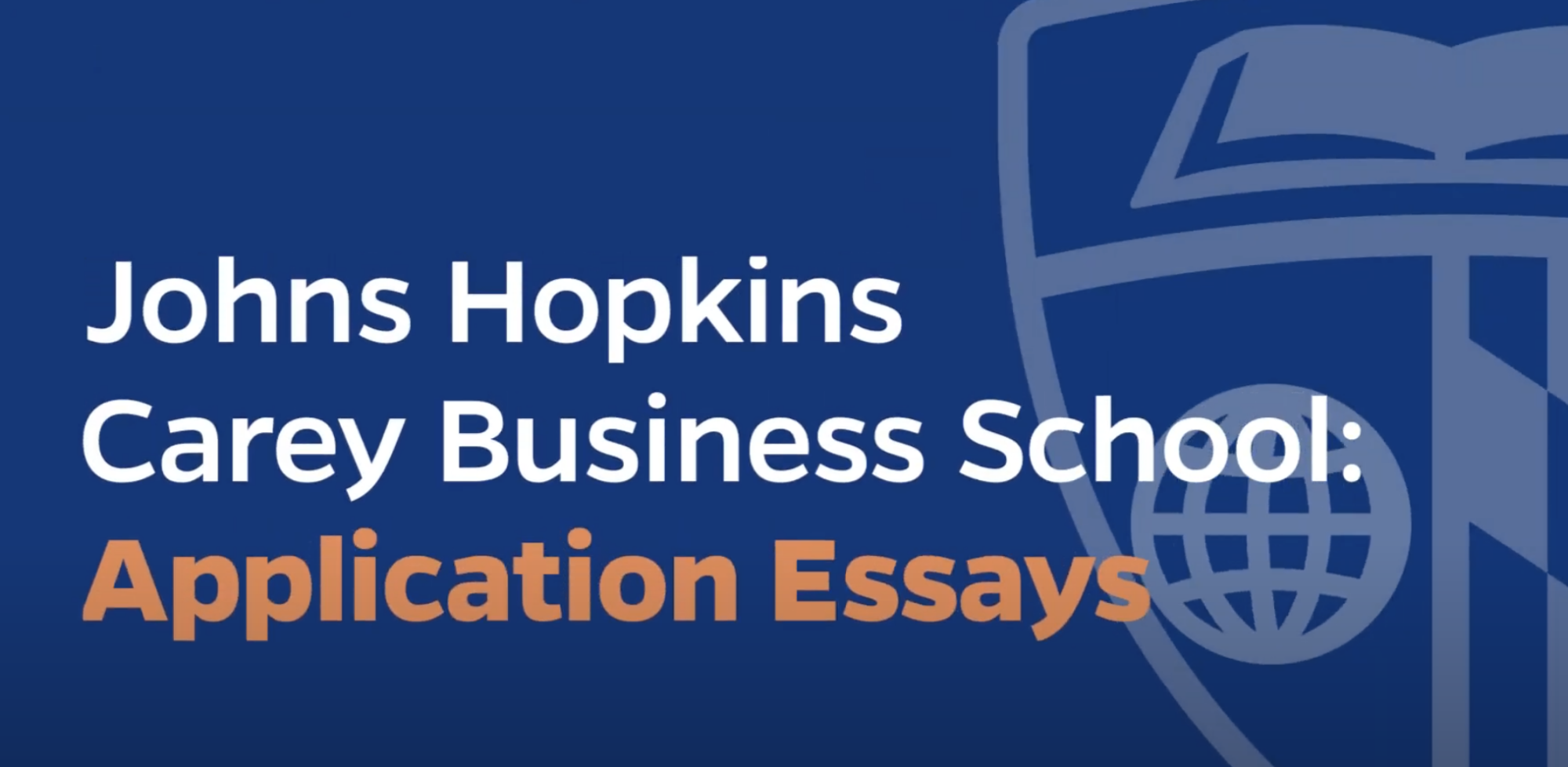
What to consider when writing a graduate school application essay The essay portion of the application is your opportunity to broaden our admissions team’s understanding of your abilities beyond what they can see on your transcript and resume. Writing an essay is your chance to share your unique strengths, personal history, journey of growth, and any additional qualities that show you are a strong candidate.
Preparing to write your essay Prior to starting your essay, read all prompts carefully. Take a moment to reflect on your reasons for pursuing a graduate business degree. It may be beneficial to have a pen and notepad at your disposal for this reflective exercise. Think about your personal journey and pinpoint pivotal moments in your growth and learning, then take note of how those moments have shaped you and your experiences, and how they could help guide you through your business school journey. Be sure to also use the correct formatting and avoid adding lists and bullet points to your essays.
Outline your thoughts Once you have a solid understanding of how to convey your personal journey within the context of the essay prompts, the next step is to construct an outline. As you shape the direction and flow of your essay, always keep your audience in mind. Our admissions team reviews thousands of application essays, so it’s crucial to find a creative hook that will make your story stand out.
Don’t overthink As you begin to write your first draft, allow your ideas to flow freely. Don’t fixate on grammar or finding the perfect words at this stage–simply capture your thoughts on paper. You can refine your essay in the second draft.
Step away After finishing your first draft, set it aside for a day or two before returning to edit it. Revisiting your work with a fresh outlook allows for a new perspective. During this second review, tackle the details of grammar, punctuation, and vocabulary. You might find it helpful to read your essay in reverse order to catch any typos.
Ask for feedback Once you feel your essay is in good shape, it’s highly recommended that you share your draft with an advisor, professor, trusted colleague, friend, or even your recommender. Gaining insights from a trustworthy source can enhance the quality of your essay and assist in identifying any typos or minor adjustments. While editing is an important step, it should not cut out your authentic voice and tone. When identifying a proofreader, make sure to find someone who knows your authentic voice and tone and can edit your paper while still preserving your natural voice and tone.
Finalize and submit You’re almost done! Before finalizing your essay submission, do one last review. Run a spell check and read your essay out loud to yourself. This approach can help you pinpoint areas that might require clarification or fine-tuning. As you review your final draft, be sure that you thoroughly addressed the question on the application.
Keep in mind that the essay portion of the application is your chance to set yourself apart Admissions team members want to hear your authentic voice, with a style that sounds natural and genuine. By sharing your authentic self, and your transformative experiences, passions, goals, and voice, you can leave a lasting impression.
Best of luck with the rest of your application journey!
Upcoming Carey application deadlines
The Fall 2025 Full-time MBA application is now open. Applications for all other Fall 2025 programs will open this fall. Please visit our upcoming deadlines webpage to view all application, decision, and deposit deadlines.
Full-time MBA Fall 2025: Early action application deadline
September 11, 2024
Part-time programs Spring 2025: Round 1 application deadline
October 9, 2024
Full-time MBA Fall 2025: Round 1 application deadline
October 23, 2024
Pardon Our Interruption
As you were browsing something about your browser made us think you were a bot. There are a few reasons this might happen:
- You've disabled JavaScript in your web browser.
- You're a power user moving through this website with super-human speed.
- You've disabled cookies in your web browser.
- A third-party browser plugin, such as Ghostery or NoScript, is preventing JavaScript from running. Additional information is available in this support article .
To regain access, please make sure that cookies and JavaScript are enabled before reloading the page.
What Admission Counselors Don't Tell You
We get it. College applications are stressful. From whether to submit test scores to what to write about the in essay, the process is complicated. We spoke to an admissions expert about some of the most frequently asked (and agonized over) questions about applying to college.

Every item on this page was chosen by a Town & Country editor. We may earn commission on some of the items you choose to buy.
SV: Is there an essay topic that makes an admissions counselor immediately roll their eyes?
KC: So many! Writing about the extracurricular activities you have already listed elsewhere in your application will certainly get an eye roll. “It’s their résumé again.” Be careful with topics that affect everyone. After 9/11, for example, there were hundreds of thousands of essays about 9/11. Unless your family was in the building at that time, that wasn't a great essay topic, right? Think twice about writing about things that you might only tell your therapist. If you can make that admissions officer smile, that's great. But I also always say, "If you're not funny, don't try to be funny, because it's not going to work." Hopefully, you're telling a story only you can tell that really captures who you are in that little story.
Do colleges look at the social media accounts of applicants?
On average, about 27 percent of admissions officers look at a student's online identity. So we counsel students as early as ninth grade to be careful what they post. My advice is, everything you post should pass the Grandma test. If you wouldn’t want her to see it, don't post it. Be very careful about posting photos of you with a red Solo cup in your hand. If you can't see the liquid in that cup, an admissions officer might assume it's alcohol, right? If you're posting photos of yourself partying all the time, you're not going to come off as a scholarly student or someone who's really engaged in other activities.
Is it safer to just not have social media at all?
I don't think so, because there is a positive way to use your social media to showcase who you are, your talents, your interests, what you're doing productively with your time, and what matters to you. And you can use it to follow schools, which is where you're going to learn a lot about what's happening on campuses. I think you can be authentic to yourself, but use your social media wisely.
Another topic of much discussion is extracurriculars. What works, when is it too much, and are there any extracurriculars that just don't matter?
You don't want to be a jack-of-all-trades, master of none. We see this a lot, students just piling activities onto their list and not diving into any one thing. It's very hard to get a sense of who that student is and what matters to them. On the other end, we also see students who aren't involved in any activities at school, and that’s not good either.
The idea is that you want to pursue a few things over four years that you're truly interested in that relate to your core interests. Admissions offers are going to be looking for commitment, responsibility, leadership, how you collaborate with others, what is your impact on a day-in, day-out basis. I ask students, “What's the legacy you're leaving behind at your school because you've done this thing?" And if the school doesn't have an activity that they’re looking for, I tell students, “If you can't find it, found it, start it. Be entrepreneurial with this.”
Two words that bring up so many questions: standardized tests. What do you do if you are just not a good test taker?
Since Covid, the majority of colleges and universities in this country have gone test-optional. And if you look at this past admission cycle, about 90% of colleges were either test-optional or test-blind. The good news is that there are still many, many schools that are test-optional if you're truly not a great test taker.
That said, we are seeing a movement back to standardized testing. And the SAT and ACT are very coachable tests. However you decide to approach a test, whether it’s reading a book, taking lots of practice tests, signing up for an online class or a group class, or a one-on-one tutor, I do think it is very important to start early—we recommend 10th grade.
Another thing is to understand which is the right test for you first, the SAT or ACT. We tell students to not take both. There's probably one test that's going to be better than the other for you. And from the college's perspective, it doesn't matter which one you submit.
Do a diagnostic of each—I would say do it in 10th grade—figure out which is the best test for you, and do some preparation.
If a school is test-optional, should you send in your score anyway?
You should send in your score only if it matches your grades. If your score is aligned with your grades and it makes sense, or it's above what your grades show, then you want to send it in. But if it's below that, it's not going to help you. So we advise students not to send it in that case.
Click above to watch the video, and see below for additional resources—and specific programs—recommended by IvyWise . A good place to start is IvyWise's Knowledge Base , which has articles on many college application questions.
• Black Book by Mike Barrett and Patrick Barrett: Available in two separate versions for both the ACT and SAT. • The College Board has released four official practice tests for the Digital SAT, which you can find on the Bluebook testing application . Since there are only four of these, students should be using these sparingly and only when they are ready to take a full diagnostic. •The College Board is partnering with Khan Academy for Digital SAT prep materials, including a Digital SAT prep course. Khan Academy has added practice tests for the math and reading and writing sections of Digital SAT.
Books on Writing Technique
• Bird by Bird by Anne Lamott • The Writing Life by Annie Dillard • On Writing by Stephen King • The Best American Essays Anthology
Extracurriculars/Volunteering
•Some national organizations to research for volunteer opportunities include the American Red Cross , Best Buddies , Big Brothers Big Sisters of America , Boys & Girls Clubs of America , DoSomething.org , Key Club , Meals on Wheels America , Teen Listeners/Teen Line , and 4-H . •Students can also ask contacts in their local community for suggestions of other organizations to volunteer with, as options will vary widely by state and town/city.
Social Media
• Brand Up: The Ultimate Playbook for College & Career Success in the Digital World by Stacey Ross Cohen. •The American Psychological Association (APA) also has guidelines for how teens can develop healthy social media practices.

Editor-in-Chief Stellene Volandes is a jewelry expert, and the author of Jeweler: Masters and Mavericks of Modern Design (Rizzoli).
@media(min-width: 40.625rem){.css-1jdielu:before{margin:0.625rem 0.625rem 0;width:3.5rem;-webkit-filter:invert(17%) sepia(72%) saturate(710%) hue-rotate(181deg) brightness(97%) contrast(97%);filter:invert(17%) sepia(72%) saturate(710%) hue-rotate(181deg) brightness(97%) contrast(97%);height:1.5rem;content:'';display:inline-block;-webkit-transform:scale(-1, 1);-moz-transform:scale(-1, 1);-ms-transform:scale(-1, 1);transform:scale(-1, 1);background-repeat:no-repeat;}.loaded .css-1jdielu:before{background-image:url(/_assets/design-tokens/townandcountrymag/static/images/diamond-header-design-element.80fb60e.svg);}}@media(min-width: 64rem){.css-1jdielu:before{margin:0 0.625rem 0.25rem;}} Education @media(min-width: 40.625rem){.css-128xfoy:before{margin:0.625rem 0.625rem 0;width:3.5rem;-webkit-filter:invert(17%) sepia(72%) saturate(710%) hue-rotate(181deg) brightness(97%) contrast(97%);filter:invert(17%) sepia(72%) saturate(710%) hue-rotate(181deg) brightness(97%) contrast(97%);height:1.5rem;content:'';display:inline-block;background-repeat:no-repeat;}.loaded .css-128xfoy:before{background-image:url(/_assets/design-tokens/townandcountrymag/static/images/diamond-header-design-element.80fb60e.svg);}}@media(min-width: 64rem){.css-128xfoy:before{margin:0 0.625rem 0.25rem;}}

Roger Federer's Graduation Speech at Dartmouth

Colleges Want to Know What You Did Last Summer

College Donors Revolt Against Ivy League Schools

Princess Elisabeth of Belgium Is Going to Harvard

What Does a Canceled Commencement Look Like?

The Jock's Guide to Getting Into College

Why Ivy Leaguers Still Join Secret Societies

Reclassifying: Why Students Are Repeating Years
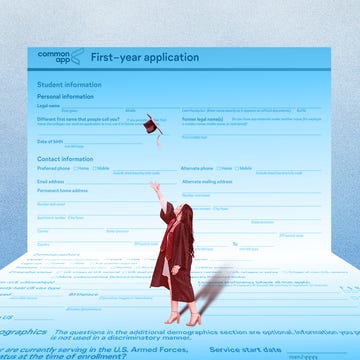
Have College Admissions Returned to Normal Crazy?

Bronx Med School Receives $1 Billion Donation

Are Elite Colleges Really Done with the SATs?
- Career Advice
- Advancing in the Faculty
Write a Book, No Matter What
As an early academic, it will not only help you create a scholarly identity and enrich your teaching, but it will also allow you to shape the career you want, writes En Li.
By En Li
You have / 5 articles left. Sign up for a free account or log in.

skynesher/E+/Getty Images
Writing the first book is time-consuming. So, you may wonder, why should people still write one—especially if a book is not required for tenure at their institution? Many people may advise you to just try to publish the best two or three chapters from your dissertation.
But I say instead: Do write a book, no matter what, because it can give you the freedom to shape your career the way you want. In this essay, I hope to re-examine the general advice about writing and publishing the first book in the specific context of an academic’s early career: why is it important to write the first book, what makes it so difficult and how best to do it.
After graduating from my Ph.D. program in Chinese history in December 2015, I started my first job at a regional university in the Midwest, where I worked for seven years. Due to its heavy teaching load, the job didn’t officially have a book as requirement for tenure. During the first three years, I published three peer-reviewed articles, with one from my dissertation.
In 2018, however, I took a research trip to Beijing and started revising my dissertation manuscript. I turned in a proposal with two sample chapters in June 2020 during the initial stage of the pandemic. I received two rounds of feedback, one from informal readers and the editor, the other from external reviewers whom the press chose. Each time, I spent about a year making the revisions without taking major research leave, except several course releases, including a one-course release when giving birth to my second child in 2021. Finally, in 2023, the Harvard University Asia Center published my book, which was about a type of organized lottery in which people bet money on the surnames of people who would pass the civil and military examinations in 19th-century China.
Like most people I know, I found the writing process long and challenging. Indeed, it is so intense and detail-oriented that it is almost like a testing ground to prove one’s physical and intellectual fitness. So why should we write? Many people describe the first book as a “tenure book,” which means you need to write a book to get tenure. But I discovered that the reward of writing a book goes well beyond gaining tenure at a single institution.
Revising a dissertation into a book provides a full spectrum of writing and publishing experiences. It enabled me to discover through my research a much broader historiographic framework and carry a consistent argument across several chapters. I got to develop a relationship with an experienced editor for more than four years and learn from the way he worked. I also experienced the commonly encountered encouraging reviewer No. 1 and the critical reviewer No. 2. In addition to content development, I also learned to index a book, design a book cover, work with a copy editor and make maps with a professional cartographer.
Since the book appeared, I’ve had the opportunity to discuss it in talks, keynotes and podcasts. I’ve seen it take on its own life and be discussed in different contexts beyond my original plan.
As William Germano describes in From Dissertation to Book , a scholar’s life is ultimately a writing life. Although scholarship can be defined in more than one way in today’s society, “a life of thinking, however, is incomplete unless all that celebration is turn into something outlives the moment of its creation.”
Working on a major book project connected me to my field. I was the only East Asian historian at a teaching-focused college, and my research was not something that would be mentioned in daily conversations with colleagues, so I appreciated all the communications about the book with editors and reviewers. Writing itself establishes its own rhythm—I had to take time to think and respond, so I did not feel lost in other responsibilities. Plus, being busy with a book project in mind helped me let go of other obsessions. “Yes,” I would tell myself, “the class did not go well this morning, but let’s move on and write.” It was like a sweet little secret that would warm my heart.
Better researchers make better teachers. By researching and writing the book, I was able to share the exciting stuff that I was reading with my students. Also, having an active research agenda made me a more confident teacher and sharpened my thoughts. In addition, being in the writing process myself, I learned to be more empathetic when I commented and coached students’ writing projects, as well as more purposeful when I designed those assignments.
The experience shaped my vision about what I want to do with my career. I want to write more, and I want to share my research and writing experiences with students, especially graduate students. This book gave me the confidence to make it happen. In 2022, the year that I was up for tenure, I decided to go on the job market again and landed my current job at a more research-oriented university in Texas.
Thus, a book is not only a learning experience, core scholarly identity and enrichment to teaching. Most essentially, it can provide the freedom to shape the career you want. Even if I had decided to stay at my previous institution, I would have had much more confidence in my standing among my fellow historians. And having a book listed on your CV especially helps if you seek a position somewhere new. In this increasingly competitive job market, meeting the rigorous external standards required to be published by a major university press usually better attests to your scholarly bona fides than subjective recommendations. So while many people may advise you about writing your way up, it is more important to write your way out, broadening your potential academic career beyond a single institution.
Editors’ Picks
- Did Trump Get HBCUs ‘All Funded’?
- In Massachusetts, a Push for Free Community College for All
- Taylor & Francis AI Deal Sets ‘Worrying Precedent’ for Academic Publishing
Of course, the earlier you are in that career, the more difficult it is to write. Those first years are usually uncertain and turbulent, allowing little opportunity to write a first book. For scholars who publish more than one book, the first one always takes longer.
Also, having worked in two different places, I realize how much the type of institution also matters—how much support for writing you receive in more research-oriented institutions when it comes to the number of conferences you can attend, the length of research leave you can take and the likelihood you can hire research assistants. Such R-1 jobs are limited, however, and few people obtain one at the beginning of their careers.
Thus, the earlier you are in your career, the more likely you land a teaching-focused job and various contingent positions. You teach a lot, you move a lot and you spend a lot of time looking for the next job. The more you do so, the less time you have for writing, the less likely you can get a book published and the less likely you’ll get a different job. In From Dissertation to Book , Germano acknowledges that turning dissertation to book can be “the most difficult hurdle to jump” in a scholar’s career—and the most ironic aspect is that the people who need to write the most probably are the least able to write. As Claudia Goldin, a Nobel Prize winner in economics, observes , certain jobs are “greedy”—they demand people to work overtime and put in long hours. Both writing and teaching are greedy, especially for new instructors.
So what can you do, especially when you cannot increase the total amount of time, to approach the use of time more strategically? Here are a few lessons, based on my own experience.
Learn to teach very well during the first several years. Many people recommend cutting corners in teaching to maximize the time to write, but I do not. Teaching is part of the job, and if you cut corners of teaching, you cut corners on a very important skill set. During the first few years I was working, I took time to attend many teaching workshops that my institution offered. I observed all my colleagues’ classes in a small department, and my colleagues observed my classes and I took their feedback to heart. I also took notes and analyzed students’ feedback every semester.
Later, as teaching became easier, I was able to devote more time to writing. And I discovered that learning how to be an effective teacher can improve your writing in various ways. Writing in general is a craft of storytelling, and you are trained to be a storyteller in class every day. You learn to engage a diverse body of students and address questions in different classes beyond your own field. You come up with a few takeaways to end each class before students rush to lunch, which turns out to be good practice for summarizing a book chapter. And that’s not to mention how much broadly reading good books and being exposed to different subject matters, theories and methodologies when you prepare for classes can contribute to your writing.
Join a writing group and be realistic about it. My institution did not have a writing group. I initiated one with one of my colleagues in 2018 when I started to revise my dissertation. We met once a month for 90 minutes—first in person and then online during the pandemic. About 10 people from different disciplines came regularly to discuss their writing progress and strategies, as well as to workshop each other’s writings. It was especially helpful to work with people who shared a similar teaching load and were realistic about the writing progress.
Always write before teaching. If you cannot increase the amount of time, focus on the quality of the time. The No. 1 rule I’ve followed for many years has been to write first thing in the morning. After my first child, I wrote between 6 and 7 a.m. Now, with two children, I write between 5 and 6 a.m. before everyone else gets up. I’ve found it is especially important for me to write before teaching so I can continue to think about those ideas for the rest of the day. Sometimes, even if I have only five minutes before class, I will use it to revise an outline or to add a footnote.
Determine the time when you do your own most productive writing, which might be quite different than mine. Joli Jensen has called it “the A energy ,” and Cathy Mazak has called it “ the tiger time ,” both referring to the best energy you have during the day. You should also write consistently every day. Writing is no different from practicing music and sport—regardless of how talented you are, you must create the environment to practice.
Play the hand you have. Writing a book is a long process, and it’s especially hard to discern much progress in the early stages. It’s tempting to rush it or to feel bad about not doing enough. I’ve had to remind myself that I only have so much time and can only do a few things well in life. I did not have a whole year of research leave, for instance, so I applied for a course release here and there, and some of them were granted. In pursuing those small ways to carve out time to write, I learned to be honest and realistic.
I’ll sum up with an analogy. My first book was about gambling, so I regularly taught my students to play mah-jongg in class. In some ways, writing the first book is like playing mah-jongg. Very few players get promising tiles to make a winning set right away. The earlier you are at a game, the more random tiles you get. So you need to play the hand you have and take and discard your tiles strategically. You need to be patient and wait for your winning set.
Similarly, when writing a book, it may take several years, and you may never be in the optimal position to write. But the reassuring thing is that, like a mah-jongg game, you don’t need just one best set to win. So, again, I encourage you to go ahead and write a book, as it can allow you to ultimately make your own winning set.
En Li is an assistant professor of modern East Asian history at the University of Texas at Dallas. Her first book, Betting on the Civil Service Examinations: The Lottery in Late Qing China , was published by the Harvard University Asia Center. Previously, she was an assistant professor in Asian and world history at Drake University, where she received the Outstanding Teacher of the Year award in 2021.
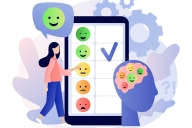
Listen: How Digital Applications Help Students’ Mental Health, and What We Don’t Know
In the latest Voices of Student Success episode, hear about the rise of mental health applications for college studen
Share This Article
More from advancing in the faculty.

In Praise of Ditching the Summer To-Do List
Melissa Nicolas describes how giving up her guilt about not checking things off such a list has helped her actually h

3 Ways to Improve Your Summer Writing Practice
Erin Marie Furtak has found that asking herself three questions has helped her transition not just out of the academi

Do Teachers Fetishize Technology?
Whether or not we believe in techno-progress, we are incentivized to constantly develop pedagogies involving new tech
- Become a Member
- Sign up for Newsletters
- Learning & Assessment
- Diversity & Equity
- Career Development
- Labor & Unionization
- Shared Governance
- Academic Freedom
- Books & Publishing
- Financial Aid
- Residential Life
- Free Speech
- Physical & Mental Health
- Race & Ethnicity
- Sex & Gender
- Socioeconomics
- Traditional-Age
- Adult & Post-Traditional
- Teaching & Learning
- Artificial Intelligence
- Digital Publishing
- Data Analytics
- Administrative Tech
- Alternative Credentials
- Financial Health
- Cost-Cutting
- Revenue Strategies
- Academic Programs
- Physical Campuses
- Mergers & Collaboration
- Fundraising
- Research Universities
- Regional Public Universities
- Community Colleges
- Private Nonprofit Colleges
- Minority-Serving Institutions
- Religious Colleges
- Women's Colleges
- Specialized Colleges
- For-Profit Colleges
- Executive Leadership
- Trustees & Regents
- State Oversight
- Accreditation
- Politics & Elections
- Supreme Court
- Student Aid Policy
- Science & Research Policy
- State Policy
- Colleges & Localities
- Employee Satisfaction
- Remote & Flexible Work
- Staff Issues
- Study Abroad
- International Students in U.S.
- U.S. Colleges in the World
- Intellectual Affairs
- Seeking a Faculty Job
- Seeking an Administrative Job
- Advancing as an Administrator
- Beyond Transfer
- Call to Action
- Confessions of a Community College Dean
- Higher Ed Gamma
- Higher Ed Policy
- Just Explain It to Me!
- Just Visiting
- Law, Policy—and IT?
- Leadership & StratEDgy
- Leadership in Higher Education
- Learning Innovation
- Online: Trending Now
- Resident Scholar
- University of Venus
- Student Voice
- Academic Life
- Health & Wellness
- The College Experience
- Life After College
- Academic Minute
- Weekly Wisdom
- Reports & Data
- Quick Takes
- Advertising & Marketing
- Consulting Services
- Data & Insights
- Hiring & Jobs
- Event Partnerships
4 /5 Articles remaining this month.
Sign up for a free account or log in.
- Sign Up, It’s FREE

IMAGES
VIDEO
COMMENTS
That question could be at the end of the ethnicity paragraph or at the beginning of the religion paragraph. If a question works well, that can be a good variation for a bridge statement. However ...
For many, getting started is the hardest part of anything. And that's understandable. First, because it turns whatever you're doing into a reality, which raises the stakes. Second, because where you start can easily dictate the quality of where you end up. College essays have their own special brand of DTDT.
Use the Historical Present Tense. An effective method of beginning an essay is to use historical present tense to relate an incident from the past as if it were happening now. "Ben and I are sitting side by side in the very back of his mother's station wagon.
What kinds of questions should you NOT use to start an essay? • Questions that can be answered with a "yes" or a "no" are usually bad questions. Do you have any reason to continue reading when you read these questions? -Have you ever played basketball? -Do you really want a dog? -Would you like to hear about my trip to the beach?
In my opinion, questions are a matter of style, and, when not overused, they can add value to an essay. I don't think there is a "correct way" or hard-and-fast rule to go by. Rhetorical questions (like the one you include in the block quotation) are a staple of arguments at all levels; and the reason they are so popular is that they are (or can ...
To start with a quote is not wrong, but you may do better, as onomatomaniak suggested, to "think of an engaging first sentence that makes the reader think you have something interesting to say." Aside from limiting range of expression, starting with a quote requires attribution (crediting the source of the quote) which may cause the reader to ...
Do a Freewrite. Give yourself permission to write without judgment for an allotted period of time. For each topic you generated in your brainstorm session, do a free-write session. Set a time for one minute and write down whatever comes to mind for that specific topic. This will help get the juices flowing and push you over that initial bit of ...
The introduction to an academic essay will generally present an analytical question or problem and then offer an answer to that question (the thesis). Your introduction is also your opportunity to explain to your readers what your essay is about and why they should be interested in reading it. You don't have to "hook" your readers with a ...
The writer of the academic essay aims to persuade readers of an idea based on evidence. The beginning of the essay is a crucial first step in this process. In order to engage readers and establish your authority, the beginning of your essay has to accomplish certain business. Your beginning should introduce the essay, focus it, and orient ...
Alicia Smart. Ideally, you can ask questions in an essay, provided they are relevant and add value to the arguments of a paragraph. A question in an essay should always contribute something substantial to the arguments you make in the essay. Questions should not bring idle speculations that may drop the essay's tone.
You can't start an argumentative essay with a question. While rhetorical questions are powerful for producing an effect or making a statement, they aren't effective for starting an argument. Rather than asking a question in the essay, start with a rhetorical statement. Rhetorical statements are far reaching in argumentative writing.
If you are writing a research paper it is quite difficult not to have a question in some form. The purpose of the introduction is to set your study (question/gap of knowledge or what have you) in perspective, to narrow the focus down from a slightly bigger picture to the gap you are trying to fill or narrow even further with your study.
Jun 5, 2014 at 13:44. The question works better in the first example, where the text prededing it deals with the same topic, the inability to remember, and the question follows naturally from this. In the second example, the preceding text is a description of a person's clothing, and the question, quite unexpectedly, skips to why she is there.
The past tense of "pose a question" is "posed a question.". As an example, you might say, "I posed the question to my boss, but he didn't have an answer for me.". If you are writing about someone else posing a question, you would use the third person past tense: "He posed a question to his boss.". On a related note, the past ...
Like starting a book with "a dark and stormy night" or a movie with the main character woken by an alarm clock, it draws attention to itself as a stale trope. But you don't have to abandon the quote. One solution is saving it for the meat of your essay where it can be better dissected, and using a fresher hook for your introduction.
If the quote is relevant to the importance you can use it by a presentence of yourself. Overally speaking the direct quote in academics is not generally acceptable with an exception for pioneers of that field. You can use an implication of this qoute and write in your language with a citation to the original document. Share. Improve this answer.
Ideally, you should start working on your essays as soon as possible, preferably in the summer before application season. This will give you ample time to brainstorm, write, edit, get feedback, and revise. The Common App opens on August 1st, but the prompts are usually released in February. School supplements, meanwhile, are typically released ...
Examples of the Worst Kinds of Essay Opening Lines. Here are 10 examples of such boring or baffling opening lines—chasers that you'll want to avoid when composing your own essays. The examples are in italics, and the explanations are in bold . According to my dictionary . . . Avoid leads [or ledes] that quote Webster's—"the Jim Belushi of ...
At some point during their academic careers, many students were told by a teacher not to open a narrative essay, or any other expository essay, with a question. This wasn't erroneous advice; in all likelihood, the teacher was trying to steer students away from a technique that often backfires, because ...
I wouldn't do either. It's obviously an essay or document. If the title isn't clear enough, try writing the opening paragraph in a different, more interesting and unique way. Grab the reader's attention and make them interested in the topic. You: In this essay, I will discuss Digifant and its applications in mid-80s Volkswagens.
To me (hint: opinion), starting a paragraph with a question is cliche. 1) I can understand the use of it in other literature, but it's overly stylized in scientific writing. 2) People usually start reading the abstract because they are attracted by your title. There isn't really a strong need to use another bait.
How to write a college application essay can be one of the more confusing elements of the college application process. But we think it doesn't have to be. So we're building this post to offer a clear, step-by-step process you can use, followed by tips for how to strengthen your essay (also referred to as a "personal statement").
Here's a question that I've been asked many times: Is it ok to start an essay with 'nowadays'? The quick answer is yes. There's nothing wrong with this word, and the examiner won't reduce your score if you use it. But be careful. Not all topics can be introduced with the word 'nowadays'. This word is usually used by native speakers to compare the present with the past e.g. Fifty years ago ...
The essay is an integral part of the application, as it is typically viewed by all the schools to which a student applies. ... The key to writing a thoughtful, introspective essay is to start ...
Writing an essay is your chance to share your unique strengths, personal history, journey of growth, and any additional qualities that show you are a strong candidate. Preparing to write your essay Prior to starting your essay, read all prompts carefully. Take a moment to reflect on your reasons for pursuing a graduate business degree.
4 Read the essay title in Task 2. It was written by a tutor for a student to answer, possibly in an exam, so it explains "urbanisation" as "large numbers of people to migrate from rural areas to the larger cities". However, if this title was written by college students to answer themselves, it might be rephrased as a single sentence without any options or explanations for the student, such as ...
A good place to start is IvyWise's Knowledge Base, which has articles on many college application questions. Test Prep • Black Book by Mike Barrett and Patrick Barrett: Available in two separate ...
A huge question that has been asked for a while is, is abortion ok? There is two sides to this argument. The two sides are pro-life and pro-choice. Pro-life is the side against abortion. Pro- choice is the side for abortion. Pro- life often argue that abortion takes innocent lifes and people are just avoiding responsibility.
In this essay, I hope to re-examine the general advice about writing and publishing the first book in the specific context of an academic's early career: why is it important to write the first book, what makes it so difficult and how best to do it. ... You learn to engage a diverse body of students and address questions in different classes ...
Safe Start Breshaunna Smalls Wiregrass Technical College Safe Start Cybercrime is any crime that involves a computer and a network. The computer may have been used in the commission of a crime, or it may be the target. Throughout the years there has been several debates stating whether or not cyber crime should even be considered a "real ...